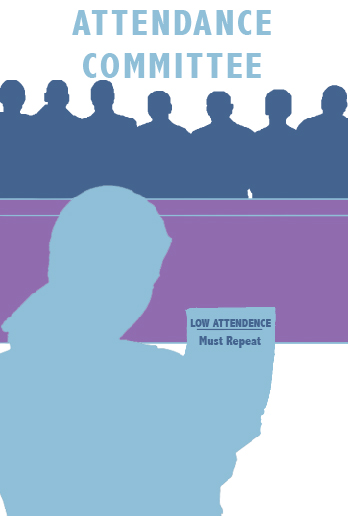Attendance process decisions in need of revisions
January 16, 2017
Whether you know it or not, students are a walking dollar sign every time you show up at school.
If you aren’t here, the school loses money from the state.
The Texas Legislature revised the state’s compulsory attendance law in 2013 mandating that all students who fall under a 90 percent attendance rate will lose credit for the classes they missed. After students miss four classes in the fall or five classes in the spring they will lose credit.
Last year, appeal processes were created for students who fall below either 90 or 75 percent attendance. If a student doesn’t complete the principal’s plan or falls below 75 percent attendance, the student must have a meeting with an attendance committee to develop a recovery plan.
On the positive side, stricter enforcement of attendance laws has helped to improve Akins attendance in recent years. It increased from 91.8 percent during the 2014-2015 year to 93.6 this year at the end of the 2015-2016 school year.
However, there are students who fall through the cracks in the system. Some are just missed by busy administrators who have too many students assigned to them. Others are chronically absent and fail to live up to the agreements established with administrators to make up for the missed class time.
Another problem with the state’s attendance system is that the illnesses are counted against the 90 percent requirement. The only automatic health related excused absences are those in which a student has a doctor’s appointment or those in which a student was hospitalized.
Otherwise, students must have their missed days due to illness verified by a principal or committee before being cleared. Having to go through verification is an unnecessarily lengthy process for just trying to get a medical absence excused. It makes something that should be very simple is way more complicated than needed.
We as the editorial board believe that to save money and time for everyone involved, the best way to streamline the process is to hire somebody who can only focus on students’ credits.
This will prevent students from being overlooked so that the campus does not lose money due to attendance.
We agree that students must attend school for the vast majority of the time for students to earn credit for their classes. However, in this case the state has not done its part in helping schools better manage attendance and ensure students are coming to school.
The state should provide appropriate funding when it meets this spring to pay for an attendance specialist that will help notify students and communicate with them on a current and up-to-date basis. Ultimately, this position should help students earn more funding if they can help a school increase its attendance rate.







